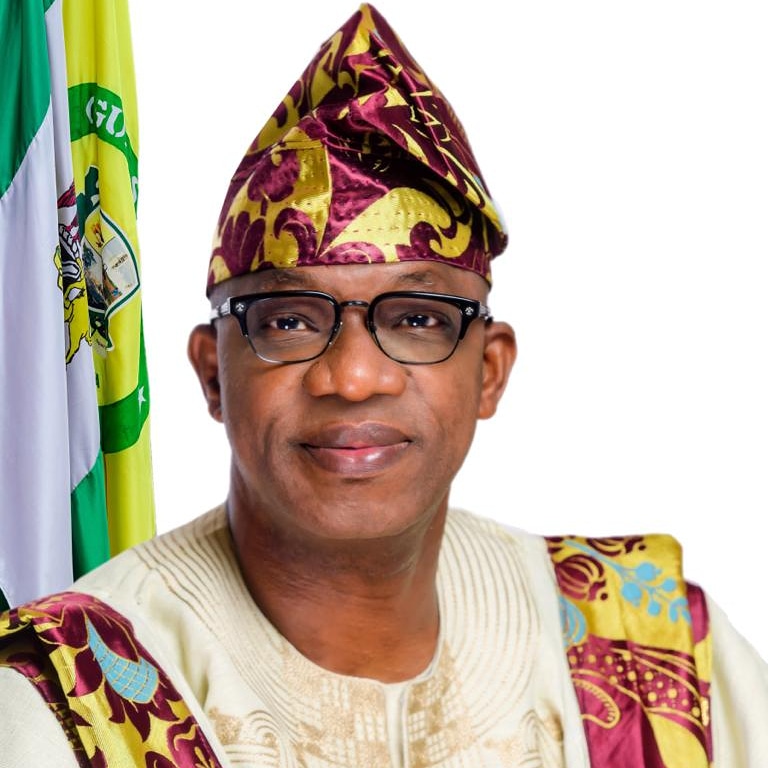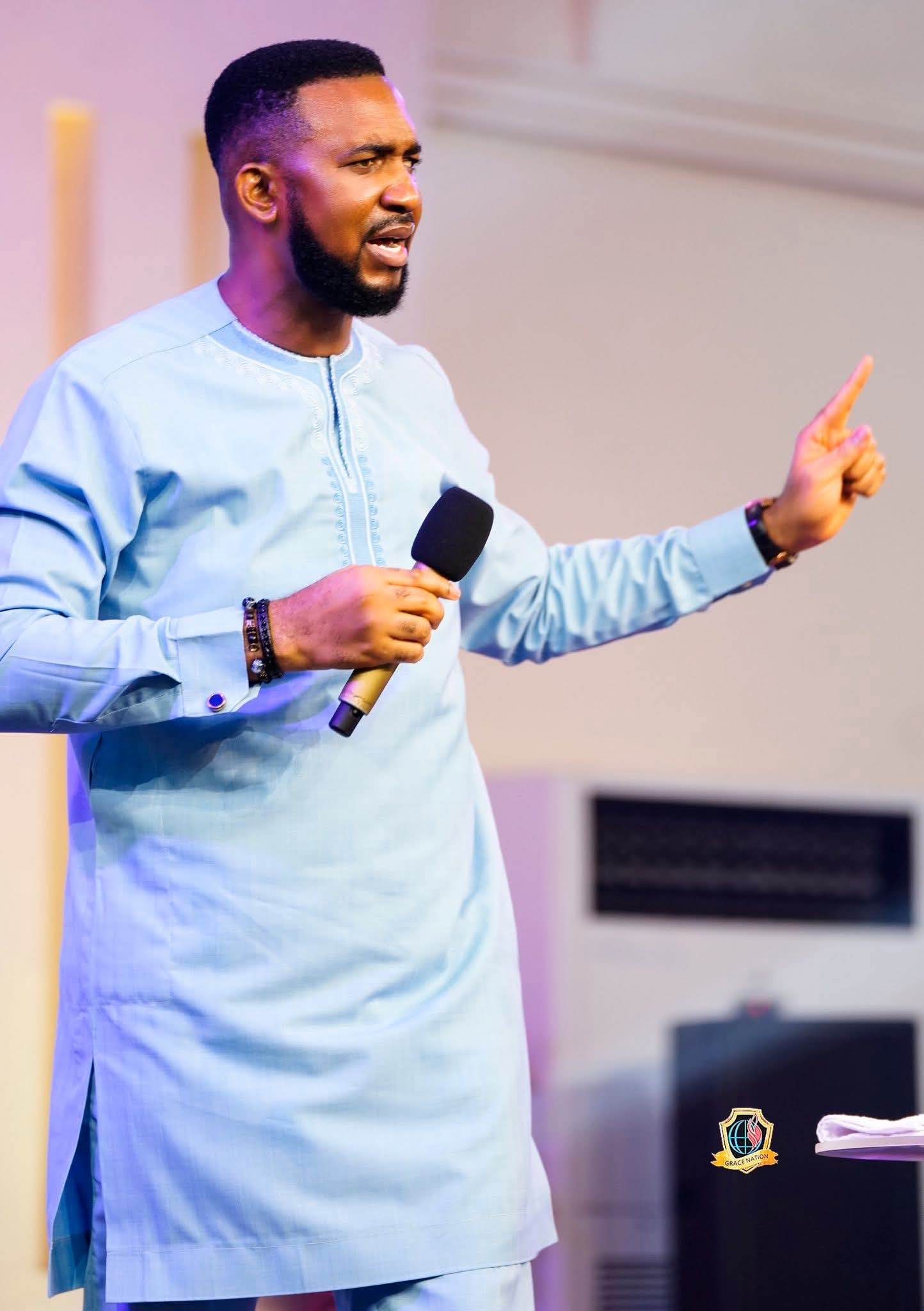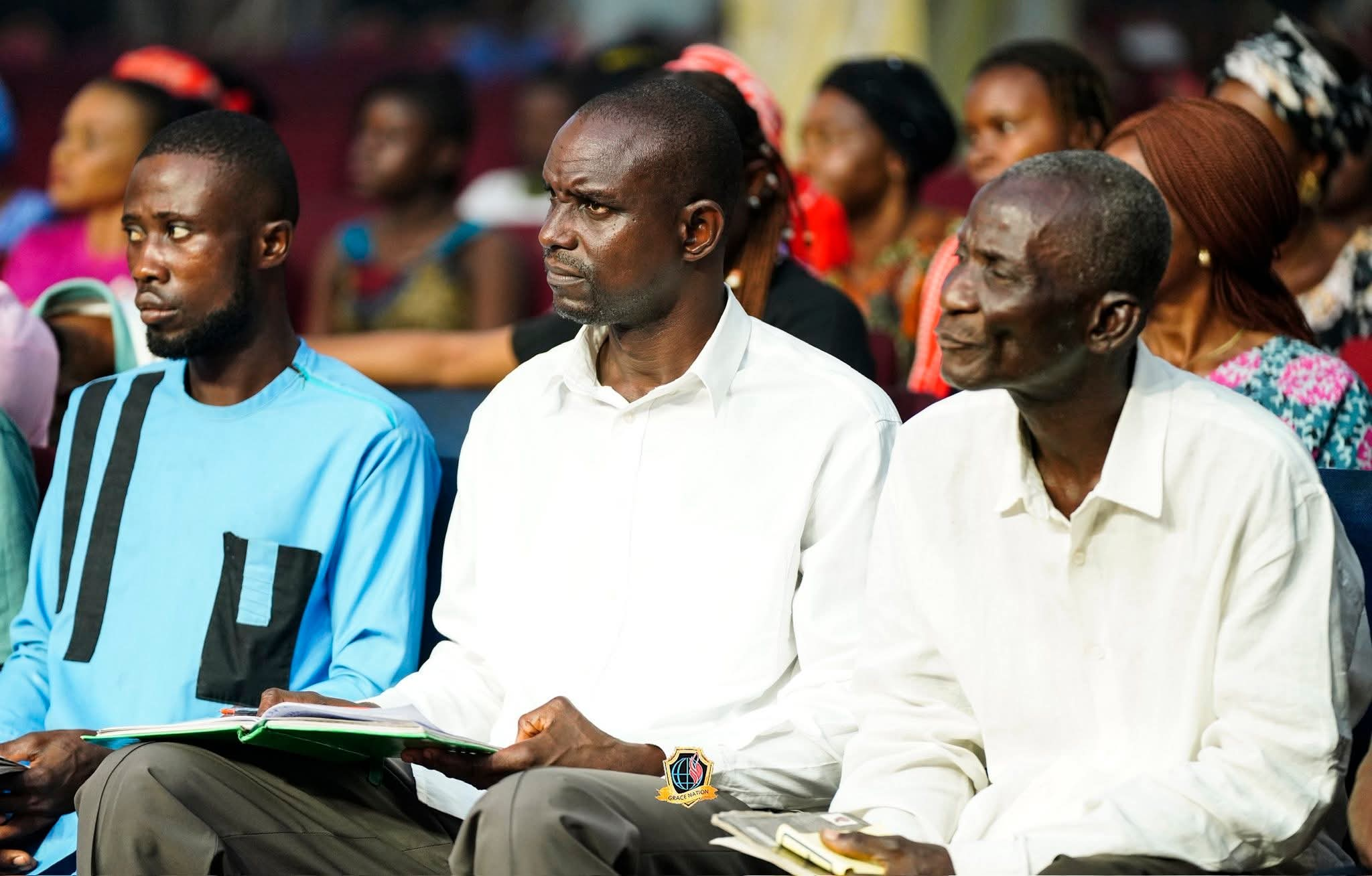celebrity radar - gossips
Abiodun vs Amosun: Joining the debate

The comments credited to Architect Segun Abiodun, the immediate past Commissioner for Housing in Ogun State, made my gorge rise. Abiodun, in a press statement on the controversial Ogun Judicial Complex, accused the current governor, Prince Dapo Abiodun, of “chasing shadows.”
The Amosun government misled the public one too many times. For instance, in early April this year, the media was awash with the news of Amosun saying that 3,000 students had completed admission processes at Ogun State Polytechnic, Ipokia and would matriculate in May. But subsequent findings showed that the former governor deliberately deceived the public as no such admission procedure took place not to talk of matriculation. Thank God Amosun himself said to newsmen that the new polytechnic would take off in May as everything, according to him, was ready. Otherwise he would have blamed Governor Dapo Abiodun for his “abandoned project” at Ipokia.
Again, a few days to his exit from power, we read in the press that Amosun had paid the severance gratuity of all his political office holders and did not owe the civil servants. But the state chapter of the Nigeria Labour Congress debunked the news report at a press conference, listing all the entitlements being owed by Amosun.
The NLC chair spoke of the “discomfort, pain and irreparable damages the outgoing administration has inflicted on the public servants and their families in the state are unbearable.
“Some homes have been broken, lives have been lost to common ailments due to lack of money for medications and treatment; wards and children admission to higher institution lost, personal project abandoned, professional training and development programme abandoned and predisposition of workers to many embarrassing situations making many chronic debtors as a result of non-payment of salaries and other entitlements due to them.”
One was shocked to the marrow to discover that apart from Segun Abiodun and a few others, the majority of Amosun political office holders suffered untold financial hardship. Some of them, who are friends and relatives, confirmed that Amosun paid them half salaries throughout their tenure and denied them the most basic of their entitlements. Undenied reports in the social media have it that contrary to the widely circulated rumours that the Amosun government paid the severance of all the political office holders that served between 2015 and 2019, his own special assistants and senior special advisers were not paid and have appealed to the Abiodun government to offset the severance in order to encourage sacrificial service by public office holders.
Last but not the least, whereas ex-governor Amosun consistently claimed in the newspapers that workers’ wage bill was N9.2 billion per month, the government of Dapo Abiodun discovered the wage bill was actually N7 billion per month, prompting stakeholders in Ogun to demand from Amosun to explain the whereabouts of the monthly balance of N2.2 billion for eight solid years.
Given this background, the comments by Segun Abiodun, the Commissioner for Housing, came to one as most insensitive, as it rubs pepper on the wounds of majority of past political office holders that served with him in the Amosun government and the civil servants. Hear Segun Abiodun, in the widely circulated press release:
“The comments of Prince Dapo Abiodun so far on projects inherited from the Amosun Administration have indeed confirmed fears that many of them would be denied of funding to frustrate their completion so as to label them as abandoned projects of the Amosun Administration. Thankfully the Amosun-led administration foresaw this and ensured that on-going projects were either fully paid for or advance payments of between 80 – 90% were made. But for this pro-activeness, all the projects would have been truncated.”
The pertinent questions are: Where did Amosun get the fund to pay contractors 100 per cent or 90 per cent in advance, for projects not yet executed at the time when Ogun public and civil workers were being owed billions of naira entitlements and consequently being turned into beggars by the Amosun administration?
And where has it ever happened in Nigeria that a governor would pay 100 per cent or 90 per cent upfront for multi-billion naira projects in our well-known system notorious for corruption and where contractors often play pranks with public funds in collusion with some unpatriotic government functionaries? Is it not surprising that despite the untold financial suffering imposed on its workers, the Amosun government surreptitiously went ahead to pay 100 per cent for a judicial complex that was launched when it was just about 35 per cent completed? Now, the contractors want to renegotiate with the Abiodun government just six weeks after Amosun left government with a view to increasing the contract value! What audacity? What an attempted rip-off? This, certainly, demands a judicial probe.
One must commend Governor Dapo Abiodun for resisting the pressure to part with the scarce resources of the state on some of the self-serving projects of the Amosun administration.
However, the coup de grace in Segun Abiodun’s vacuous press statement was his unsolicited advice to the new governor: “We implore Prince Dapo Abiodun to roll up his sleeves and begin to work for the people of Ogun State rather than chasing shadows, trying to find fault in every project of the Amosun Administration.”
Well, one wonders why this advice was not made available to Amosun when he was in power. Out of the 20 or 25 model schools built by Amosun, only one was said to be partly functioning before he left office on May 29. Yet he spent about N1 billion on each school before abandoning them to rodents, reptiles and area boys. Virtually all the uncompleted model schools were overgrown with bush years before Amosun left office. Did Amosun also pay 100 per cent ahead for the model schools and then abandoned them by himself three clear years before he left government? Are the multi-billion naira model schools not abandoned projects of the Amosun administration? And why would the former governor abandon the model school project that was said to be dear to his heart mid-way into completion only to go ahead to pay 100 per cent upfront for new projects, shockingly, on the eve of his departure from power? If this action of Amosun is not treated as manifestly suspicious, as to warrant a judicial probe, then I wonder if we will ever get it right in this country.
At least I know the model schools in Owode Ofada, Kemta in Abeokuta, Ilaro and one in Ijebu. They were abandoned by Amosun since 2014, five clear years before he left government after spending billions of naira on them. We await Segun Abiodun’s response to this and the fantasy 250-bedroom specialist hospital that Amosun began on the eve of his exit while the state hospital Ijaye in Abeokuta and OOUTH, the only teaching hospital in the state, were completely in ruins.
Barr Oladele, public policy commentator, writes from Akute, Ogun State.
celebrity radar - gossips
Spiritual Reality: Wicked People Are Possessed by Wicked Spirits — Dr. Christian Okafor

Spiritual Reality: Wicked People Are
Possessed by Wicked Spirits — Dr. Christian Okafor
…..“You don’t need to offend them before they attack you.”
…..“Your only true help comes from God.”
Demons are strategic and calculating. They detect threats quickly and position themselves to resist any power that may expose or overpower them.
According to the Generational Prophet and Senior Pastor of Grace Nation Global, Christian Okafor, spiritual intelligence operates both in light and in darkness—and believers must understand this reality.
Dr. Okafor delivered this message on Thursday, February 19, 2026, during the midweek Prophetic, Healing, Deliverance and Solutions Service (PHDS) held at the international headquarters of Grace Nation Worldwide in Ojodu Berger, Lagos, Nigeria.
The Operations of Demons
Teaching on the subject “Spiritual Reality” with the subtitle “Operations of Demons,” the Man of God explained that when demons possess individuals, their behavior changes. Such people may attack, bully, or resist those sent by God to help them, unknowingly rejecting divine assistance and prolonging their struggles.
“You don’t need to offend a demon before it attacks you,” he said. “What you carry is enough to provoke opposition. The greater your potential, the greater the battle.”
Dr. Okafor noted that many believers misinterpret battles as signs that God has abandoned them. However, he explained that some battles are permitted for growth, training, and divine glorification.
According to him, God may allow certain confrontations so that believers understand spiritual warfare and emerge stronger.
“Some battles are necessary,” he emphasized. “They push you into your turning point.”
He further stated that God does not respond to lies, blackmail, or bullying. He responds to His Word. Therefore, opposition is not proof of God’s absence, but often evidence of destiny at work.
The Weapon Against Demonic Attacks
Addressing solutions, Dr. Okafor described prayer as the strongest weapon against satanic operations.
“Prayer is the license that invites God into your battles,” he declared. “God does not intrude—He responds to invitation.”
According to the Apostle of Altars, understanding the principles and discipline of prayer enables believers to receive divine strategies for overcoming demonic resistance. Without prayer, he warned, spiritual help cannot be activated.
“You cannot receive help without God,” he concluded. “And you cannot engage God without prayer.”
Manifestations at the Service
The midweek gathering was marked by a strong move of the Spirit, with testimonies of deliverance, miracles, restoration, and solutions to various challenges presented before God. Several individuals reportedly committed their lives to Christ during the service.
celebrity radar - gossips
Kingdom Advancement: God Does Not Confirm Lies or Gossip — He Confirms His Word .” — Dr. Chris Okafor

Kingdom Advancement: God Does Not Confirm Lies or Gossip—He Confirms His Word
“When Doing Business with God,
People’s Opinions Do Not Count.”
— Dr. Christian Okafor
The greatest investment any Christian can make is partnering with God. According to the Generational Prophet of God and Senior Pastor of Grace Nation Global, Christopher Okafor, when a believer commits to serving and advancing God’s kingdom, no barrier, lie, gossip, or blackmail can prevail against them.
This message was delivered during the Prophetic Financial Sunday Service held on February 15, 2026, at the international headquarters of Grace Nation Worldwide in Ojodu Berger, Lagos, Nigeria.
Doing Business with God
Teaching on the theme “Kingdom Advancement” with the subtitle “Doing Business with God,” Dr. Okafor emphasized that when a believer enters into covenant partnership with God, divine backing becomes inevitable.
“God is still in the business of covenant,” he declared. “When you make a covenant with Him, He honors the terms. When you win souls into the kingdom and remain committed to His work, He rewards you with what you could never achieve by your own strength.”
The Man of God stressed that God does not confirm lies, gossip, or negative narratives—He confirms His Word. Therefore, anyone genuinely committed to kingdom business should not be distracted by public opinion.
“No matter the blackmail or falsehood circulating around you, if you are focused on God’s assignment, those attacks will only strengthen you,” he stated.
He further noted that a believer’s understanding of God’s covenant determines their experience. “Your mentality about God’s covenant becomes your reality. When you truly know the God you serve, no devil can move you.”
Biblical Examples of Kingdom Partnership
Dr. Okafor cited several biblical figures who prospered through their partnership with God:
Abel
Abel served God with sincerity and offered his very best. His sacrifice pleased God, demonstrating that when a master is honored, he responds with favor.
David
David’s heart was fully devoted to God, and in return, God’s presence and favor rested upon him throughout his life.
Hannah
Hannah made a covenant with God, promising that if He blessed her with a child, she would dedicate him to His service. After fulfilling her vow, God rewarded her abundantly, blessing her with additional children.
Peter
Peter, a professional fisherman, surrendered his boat at Jesus’ request for kingdom work. Through that act of partnership and obedience, he experienced supernatural provision and divine elevation.
Conclusion
In closing, Dr. Okafor emphasized that one’s approach to God’s covenant determines the level of success and prosperity experienced. Commitment to kingdom advancement secures divine confirmation and supernatural results.
The Prophetic Financial Sunday Service was marked by prophetic declarations, deliverance, healings, miracles, restoration, and solutions to diverse cases presented before Elohim.
celebrity radar - gossips
At 55, Omoyele Sowore Remains a Defiant Voice of Conscience

At 55, Omoyele Sowore Remains a Defiant Voice of Conscience
By George Omagbemi Sylvester | Published by SaharaWeeklyNG
“SaharaWeeklyNG Management and Staff Salute a Relentless Campaigner for Justice and Democratic Accountability.”
As activist, journalist and politician Omoyele Sowore marks his 55th birthday, the management and staff of SaharaWeeklyNG join millions of Nigerians at home and in the diaspora to celebrate a man widely regarded as one of the most persistent and fearless voices for democratic accountability in modern Nigeria.
Born on February 16, 1971, in Ondo State, Sowore rose from student activism at the University of Lagos to become one of the country’s most recognisable pro-democracy figures. His early involvement in the student movement during the military era of the 1990s placed him at the forefront of protests against dictatorship and repression, a role that would shape the course of his life and career.
He later founded Sahara Reporters in 2006, an online investigative platform that quickly gained prominence for exposing corruption, abuse of power and human rights violations. Operating initially from the United States, the outlet became a symbol of citizen journalism and digital activism, publishing stories often ignored or suppressed by mainstream media. Over the years, the platform has reported on high-level corruption cases, electoral malpractices and security failures, earning both praise and fierce criticism from political authorities.
Sowore’s activism took a dramatic turn in 2019 when he contested Nigeria’s presidential election under the African Action Congress (AAC). Although he did not win, the campaign amplified his calls for systemic reform. Months later, he launched the #RevolutionNow movement, a nationwide protest demanding an end to corruption, economic hardship and insecurity.
In August 2019, he was arrested by Nigeria’s Department of State Services (DSS) on charges of treasonable felony. His detention, which lasted several months despite court orders for his release, sparked international condemnation from human rights groups, civil society organisations and foreign observers. The case turned him into a global symbol of resistance against state repression.
Over the years, Sowore has faced multiple arrests, court trials and travel restrictions. Yet he has remained resolute, insisting that his activism is rooted in the constitutional right to freedom of expression and peaceful assembly. Supporters describe him as a principled crusader against injustice, while critics accuse him of political extremism. Regardless of the perspective, his impact on Nigeria’s political discourse is undeniable.
His life’s work echoes the enduring words of Nelson Mandela, who once said, “Freedom is not merely to cast off one’s chains, but to live in a way that respects and enhances the freedom of others.” For many of Sowore’s followers, his sacrifices represent precisely that spirit, an unyielding struggle for a more accountable and equitable society.
Similarly, the philosophy of Martin Luther King Jr. (that “injustice anywhere is a threat to justice everywhere”) resonates deeply with the trajectory of Sowore’s activism. Whether confronting police brutality, electoral irregularities or economic injustice, he has consistently framed his struggle as one for the collective dignity of Nigerians.
Nigerian Nobel laureate Wole Soyinka once observed that “the man dies in all who keep silent in the face of tyranny.” That sentiment captures the essence of Sowore’s public life. For over three decades, he has refused silence, even when it meant imprisonment, harassment and personal sacrifice.
At 55, Sowore’s journey is far from over. He remains active in political advocacy, civil rights campaigns and public commentary, continuing to challenge what he describes as systemic failures in governance and leadership. His career reflects both the promise and the peril of dissent in a fragile democracy; where the line between patriotism and confrontation is often fiercely contested.
On this milestone birthday, SaharaWeeklyNG management and staff recognise Sowore not merely as an individual, but as a symbol of the enduring struggle for transparency, justice, and democratic renewal. His story is one of conviction under pressure, a reminder that the quest for a better society often demands courage, resilience and a willingness to stand alone.
As Nigeria navigates its complex political and economic realities, figures like Sowore continue to shape the national conversation. Whether praised or criticised, his voice remains a constant in the country’s democratic journey; loud, uncompromising and impossible to ignore.
-

 celebrity radar - gossips6 months ago
celebrity radar - gossips6 months agoWhy Babangida’s Hilltop Home Became Nigeria’s Political “Mecca”
-

 society6 months ago
society6 months agoPower is a Loan, Not a Possession: The Sacred Duty of Planting People
-

 society5 months ago
society5 months agoReligion: Africa’s Oldest Weapon of Enslavement and the Forgotten Truth
-

 news6 months ago
news6 months agoTHE APPOINTMENT OF WASIU AYINDE BY THE FEDERAL GOVERNMENT AS AN AMBASSADOR SOUNDS EMBARRASSING














You must be logged in to post a comment Login